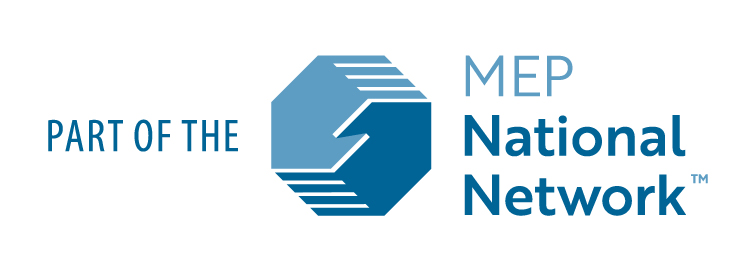Coronavirus: Updates & How to Prepare
With the global spread of COVID-19 (the coronavirus disease) Purdue University Manufacturing Extension Partnership is providing educational guides and direct support for our clients to help them plan, prepare, protect, and recover their operations.
The Coronavirus continues to make its way across the globe. As many of us are trying to keep an eye on the impact, it is a good time to think through potential risks for you and your organization here in Indiana. We owe it to our customers, employees, and communities to ensure health and safety in our business practices.
Purdue MEP has created this forum for manufacturing companies to engage one another on topics pertaining to COVID-19. Specifically, how it's effecting them and the measures being taken to continue operations while ensuring the health and safety of employees. It is our hope this platform is a means for sharing innovative practices and policies. Please note the content of this forum is neither endorsed nor recommended by Purdue MEP.
COVID-19 Resources & Information:
General Resources Available:
- Center for Disease Control (CDC) What you need to know about coronavirus disease 2019 (COVID-19)
- Center for Disease Control (CDC) provides an interim guidance for employers. Recommendations for an Infectious Disease Outbreak Response Plan
- Monitoring Map - Coronavirus COVID-19 Global Cases by Johns Hopkins CSSE
- U.S. Department of Labor has resources to help workers and employers prepare for the COVID-19 virus, including use of Family Medical Leave
- New guidance outlines flexibilities that states have in administering their unemployment insurance programs to help Americans affected by coronavirus.
- Here's how to protect yourself, according to the CDC
- Here's what to do if you get sick, according to the CDC
- COVID-19 Guidance & Resources for Small and Medium Manufacturers
- World Health Organization: Latest Updates
- Center for Disease Control (CDC): Community Guidance and Business Response
- Center for Disease Control (CDC): Environmental Cleaning and Disinfection Recommendations for COVID-19
- Travel Advisories
Indiana General Resources Available:
- Indiana Department of Public Health Information
- IN.gov has excellent state-specific guidance and resources listed under several agencies including Indiana's Department of Health, Department of Workforce Development, and Department of Homeland Security.
- 2020-03 - IAQG OPMT Supplier Notice for COVID-19.pdf
- The Indiana State Department of Health hotline is 317-233-7125 from 8 a.m. to 8 p.m. and 317-233-1325 afterward.
- Indiana Essential Businesses and Operations List
- Indiana Stay-At-Home Order FAQ
- Indiana Stay-At-Home Executive Order
- Indiana Novel Coronavirus Map
- Indiana Department of Environmental Management
What to do as a Manufacturer:
COVID-19 Guidance & Resources for Small and Medium Manufacturers
How Manufacturers Can Prepare & Plan for COVID-19
Five steps you can do right now:
- Determine supply chain disruption risks
- Reeducate employees on preventing virus spread
- Review and revise cleaning schedules for common areas
- Work with local health professionals
- Communicate promptly
Manufacturing Resources:
- COVID-19 Risk Mitigation Assistance & Certificates of Product Conformance
- Crisis Management Self-Assessment
- COVID-19 Critical Supplies Survey
- Study of Personal Hygiene Practices in Public Areas
- Corona Virus Webinar (Risk Mitigation)
- IMEC / CIRAS - Supply Disruption Planning Checklist
- Occupational Safety and Health Administration (OSHA) resources include Key OSHA standards for COVID-19
- Protecting Your Business from COVID-19 (NIST MEP)
- Responding to a COVID-19 Exposure (NIST MEP)
- Coronavirus/COVID-19 Risk Mitigation Efforts (IMEC)
- 11 Practical Resources for Manufacturers During Coronavirus (MAGNET)
- U.S. Food & Drug Administration (FDA) Coronavirus Supply Chain Update
Supply Chain Resources:
The Importance of Supply Chain Disruption Planning (NIST MEP)
Customer Advisory on COVID-19 (DB Shenker)
Coronavirus (COVID-19) Supply Chain Update (FDA)
International Trade Bulletins (FedEx)
Supply-chain recovery in coronavirus times—plan for now and the future (McKinsey & Company)
PPE COVID Supplies Needed
U.S. Medical Device and PPE Information:
COVID-19 Medical Supplies Guidelines
For manufacturers interested in making these supplies, please first review the detailed information below, including new guidance from the FDA and CDC. For most of the critically needed products, you will likely be required to obtain federal certification to begin manufacturing and sales. This page also details the critical medical supplies and personal protective equipment that are needed.
VENTILATORS
- The FDA released new guidance that allows more manufacturers to make ventilators at this time.
- The agency is allowing for device modification, and the utilization of ventilators intended for other environments.
- High acuity, invasive, portable, battery operated ventilators
- Example models: Puritan Bennet 840, Viasys Avea, Drager Evita, GEinvent, Maquet Servo-I, Hamilton G5, GE Carescape
NASAL SWAB FOR COVID-19 TEST KITS
- Nasal swab guidance for COVID-19 test kits can be found here.
- The Flocked swab tip must be synthetic (dacron or rayon) fiber and appropriately small sized for a nasal cavity (OP is too large)
- Shaft must be narrow and made of flexible plastic
- Shaft must have a break point adequately distal from the swab tip to avoid breaking in the nasal cavity
PERSONAL PROTECTIVE EQUIPMENT
N95 Respirators (hospitals)
- There are two types of respirators that are appropriate for healthcare workers with close contact with COVID-19 patients: 1) N95 Respirators; and 2) Surgical N95 Respirators.
- Surgical N95 Respirators are the appropriate device in the healthcare setting when both aerosol and barrier protection (i.e., splash or sterile field) are needed and must be approved by both NIOSH as a FFR (42 CFR Part 84) and FDA as Class II Medical Device (21 CFR 878.4040).
- FDA tests: Fluid resistance (ASTM F1862), flammability, and biocompatibility.
- N95 Respirators (approved by NIOSH under 42 CFR Part 84) are appropriate for healthcare settings where only protection from patient generated aerosols is required.
- KN-95 must meet NIOSH and/or EU standards and be CE certified.
- Surgical N95 Respirators are the appropriate device in the healthcare setting when both aerosol and barrier protection (i.e., splash or sterile field) are needed and must be approved by both NIOSH as a FFR (42 CFR Part 84) and FDA as Class II Medical Device (21 CFR 878.4040).
Medical (surgical) masks
- Surgical masks must be FDA approved under 21 CFR 878.4040 as Class II Medical Devices.
- Manufacturing standard: ASTM F2100 – 19 standard
- ASTM F2100 Level 1 standards for material quality apply in hospital/ICU settings
- Fluid Resistance with synthetic blood: 80mmHg
- Differential pressure: <4.0mmH2O
- Bacterial Filtration Efficiency (BFE) %: ≥95%
- Submicron Particle Fitration (PFE) @ 0.1u, %: ≥95%
- Flammability: Class 1
- ASTM F2100 Level 1 standards for material quality apply in hospital/ICU settings
Exam gloves
- Non-sterile, disposable patient examination gloves are appropriate for care of COVID-19 patients.
- Regulated by FDA: FDA21 CFR 880.6250 (non-powdered patient examination glove)
- Manufacturing standard: ASTM D6319 for powder-free nitrile gloves, ASTM D3578 for powder-free latex gloves
Gowns (medical), disposable with elastic wrists
- Non-sterile, disposable patient isolation gowns are appropriate for care of COVID-19 patients.
- FDA standards for gowns can be reviewed here.
- Four defined levels of protection tested to meet ANSI/AAMI PB70:
- Level 1: Minimal risk, to be used, for example, during basic care, standard isolation, cover gown for visitors, or in a standard medical unit;
- Level 2: Low risk, to be used, for example, during blood draw, suturing, in the Intensive Care Unit (ICU), or a pathology lab;
- Level 3: Moderate risk, to be used, for example, during arterial blood draw, inserting an Intravenous (IV) line, in the Emergency Room, or for trauma cases;
- Level 4: High risk, to be used, for example, during long, fluid intense procedures, surgery, when pathogen resistance is needed or infectious diseases are suspected (non-airborne).
- A surgical gown is regulated by the FDA as a Class II medical device that requires a 510(k) premarket notification. Surgical gowns can be used for any risk level (Levels 1-4).
Eye/face shields
- Must meet ANSI Z87.1 for splash protection
Goggles
- Must meet ANSI Z87.1 for splash protection
DRUGS AND CONSUMABLES
Biohazard bag (Regulated Waste)
- Must meet DOH requirements for the collection of Regulated Medical Waste (RMW) under Title 10 part 70-2.2
- Red plastic bag, of sufficient strength
- Must meet DOT requirements for the transportation of RMW under 49 CFR 173.197 (e)
- Can not exceed a volume of 46 gallons, must pass tests prescribed for tear and impact resistance under ASTM D 1922 and ASTM D 1709 respectively. Must meet a tear resistance of 480grams in both parallel and perpendicular planes with respect to length of the bag and an impact resistance of 165 grams.
- Must meet OSHA requirements under 29 CFR 1910.1030(g)(1) (i)
- Marked with a biohazard symbol
Soap, liquid (1L size)
Safety box needle (Sharps) disposal
- OSHA’s minimum requirements for sharps containers include:
- Closable;
- Puncture-resistant;
- Leakproof on side and bottom; and
- Labeled (Biohazard) or color-coded (red) in accordance with standard.
- Production of a sharps container is regulated by the FDA as a Class II medical device that requires a 510(k) premarket notification.
- Sharps containers must meet DOH requirements for the collection of RMW under Title 10 part 70-2.2
- Marked with a biohazard symbol, rigid, leakproof, puncture-resistant, and closable (Same as OSHA).
- Must meet DOT requirements for the transportation of sharps under 49 CFR 173.134(c)(2)(x)
- Securely closed to prevent leaks or punctures, less than 18-gallon capacity if transported in a wheeled rack, and made of puncture resistant plastic that meets ASTM standard F2132-01.
ADDITIONAL RESOURCES
The CDC has also listed crisis/alternate strategies on its site, including acceptable product classifications.
The FDA has posted a notice addressing Frequently Asked Questions on PPE supplies, including expedited review of manufacturing site changes.
The FDA also announced that the COVID-19 pandemic justifies the authorization of emergency use of medical devices, including alternative products used as medical devices. Please refer to the FDA’s Emergency Use Authorizations for more information on how ventilator and PPE manufacturers can get their products added to the list.
Supply chain issues/assistance: If you are a manufacturer and are unable to find enough suppliers due to supply chain shortages, please complete a supply chain assistance request.
National Association of Manufacturers:
- NAM’s Coronavirus Resources
- NAM’s COVID-19 Policy Action Plan
- NAM’s Response to Senate letter to business groups
- NAM’s Request for Guidance from the CDC
- NAM Member Coronavirus Survey Results
Indiana Manufacturers Association:
IMA COVID-19 Resource page
IMA COVID-19 Forum
IMA COVID-19 Member Alerts
COVID-19 IMA Member Questions/Answers
Listen to the IMA COVID-19 Conference Call from 3/24/2020
Call for Donations/Assistance with Personal Protective Equipment to Combat the COVID-19 Pandemic
Federal Resources:
- Interim Guidance for Businesses and Employers (CDC)
- Guidance on the Essential Critical Infrastructure Workforce (DHS)
- Coronavirus Resources (Dept. of Labor)
- Revolving Loan Fund Standard Terms & Conditions (EDA)
- Regional Office Contact Info (EDA)
- Guidance on Preparing Workplaces for COVID-19 (OSHA)
- Small Business Guidance & Loan Resources (SBA)
- The Three Step Process: Disaster Loans (SBA)
- Trade Adjustment Assistance Centers (TAACS)
Financial:
US Department of Treasury - Announcement to implement coronavirus-related paid leave for workers and tax credits for small and midsize businesses to swiftly recover the cost of providing coronavirus-related leave.
Unemployment Insurance Webinar - Indiana Unemployment Insurance Basics: What Impacted Hoosier Workers Need to Know (webinar hosted March 24th at 10:30 am)
Wondering how this will impact your Indiana Manufacturing business? Need help preparing? Contact Us Now to help protect your business.
FREE MEP Consultation!
In these unprecedented times, our Center remains dedicated to serving Indiana manufacturers. While we have suspended face to face interactions for the next few weeks, our staff is available to assist your company. As such, our subject matter experts are available to your company for consultation to help address manufacturing challenges.
Please complete the form below, and we will have one of our industry experts reach out as soon as possible to assist.


